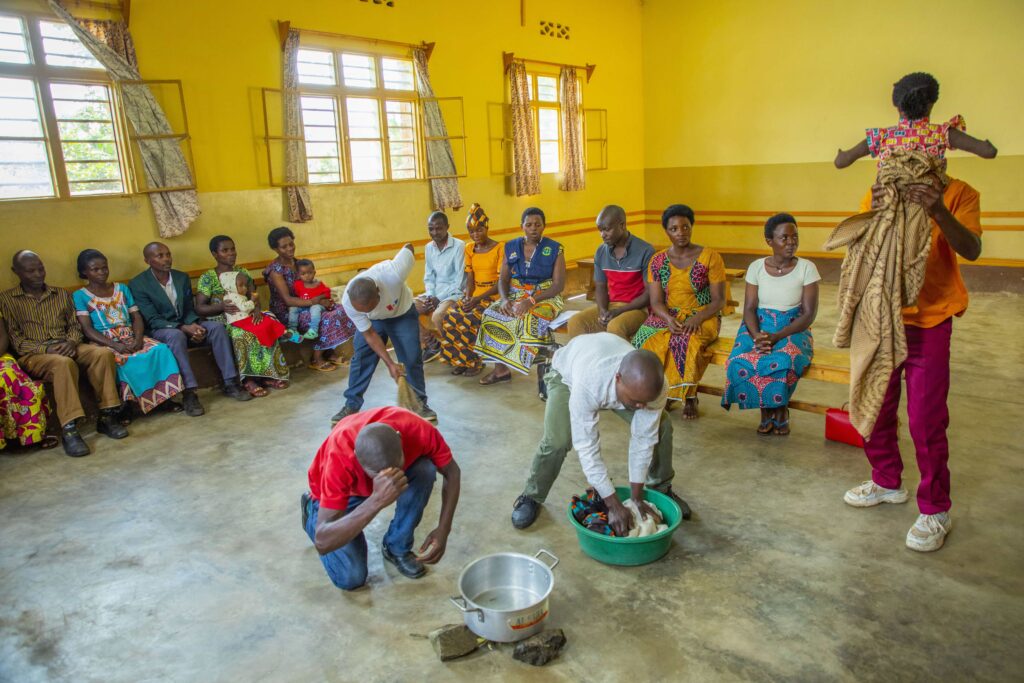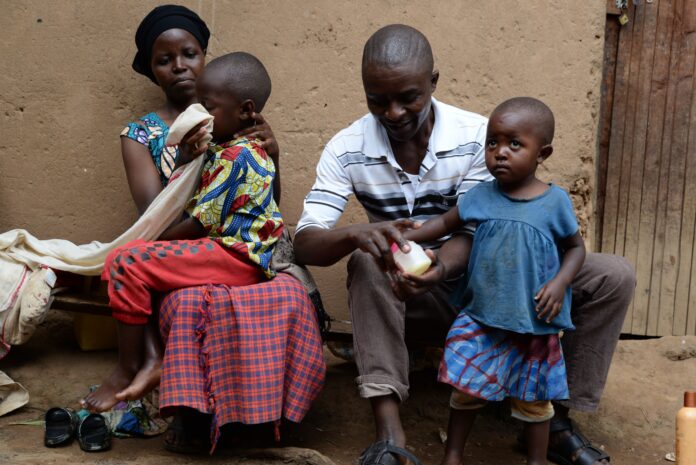In many Rwandan households, caregiving and domestic responsibilities are often seen as a woman’s duty. Deeply rooted gender norms have long shaped expectations about what men and women should do in the home, frequently leaving women overwhelmed and unsupported and in some cases, leading to violence and tension in families.
Recognizing these challenges, RWAMREC introduced the Bandebereho program, a transformative initiative designed to engage men in parenting, maternal and child health, violence prevention, and caregiving. Implemented across several districts in Rwanda, the program works closely with health centers, training community health workers and providing education to couples, especially expectant parents and those raising young children.
The goal is simple but powerful: to create families built on mutual respect, shared responsibility, and non-violence.
One father’s journey with Bandebereho stands out as a powerful example of what change can look like when men are given space to reflect, learn, and grow.

Before joining the program, he admits that his home life placed all the burden on his wife.
“Before joining the Bandebereho program, my wife managed everything on her own; cooking, collecting firewood, cleaning, and taking care of the children,” he shared.
But that changed when the couple began participating in Bandebereho sessions together. Through interactive discussions and guided reflection, he began to see how unfair and harmful those patterns had been not only to his wife but to his children and himself.
“After we joined the program together, everything changed. The program had a remarkable impact on our lives,” he said.
The sessions emphasized positive communication, empathy, and the value of nurturing fatherhood. Slowly, he began taking part in everyday household tasks, cooking meals, sweeping the compound, helping the kids with homework, and caring for the younger ones.
“Through the education sessions, I learned to share household responsibilities such as cooking, cleaning, washing, caring for our babies, and helping the children with their homework,” he explained.
“This program has strengthened my relationship with my wife and bonding with our children.”
One of the most powerful outcomes of this journey is his transformation from a man who once resorted to violence, to someone who now takes pride in being a gentle, present, and supportive caregiver.
“I am no longer violent at home; instead, I am now a supportive and engaged caregiver,” he affirmed.
The Bandebereho program doesn’t just change individuals; it transforms entire families. By helping men unlearn harmful gender norms and equipping them with practical tools to engage as equal partners and loving fathers, the program is building a foundation for healthier, happier homes across Rwanda.
This father’s story is just one of many, but it shows that when men are invited to be part of the solution, real and lasting change is possible.



